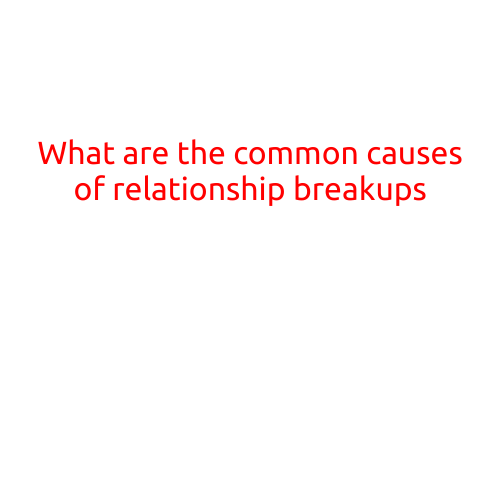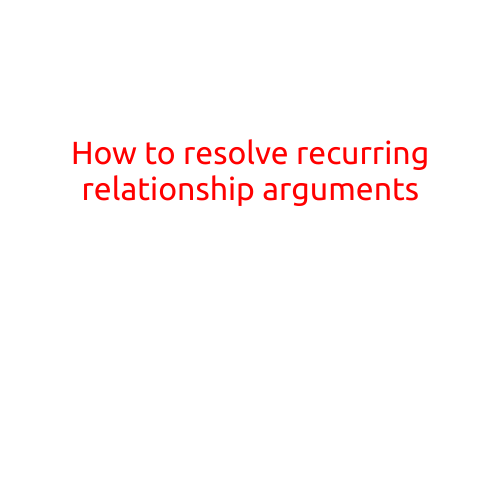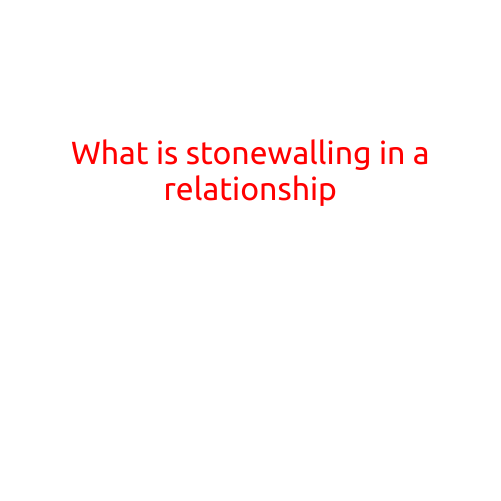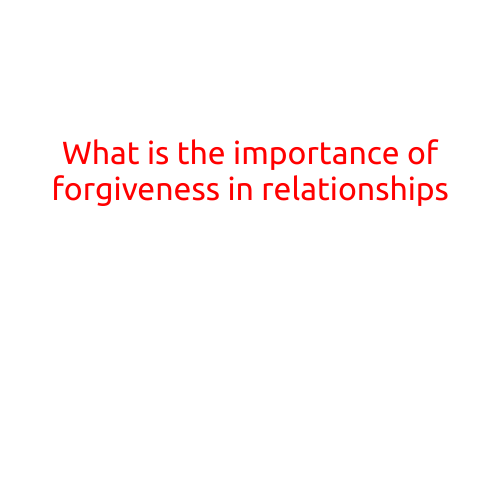
What are the Common Causes of Relationship Breakups?
Relationship breakups can be painful and often unexpected. While no two relationships are alike, there are some common factors that can contribute to the end of a romantic partnership. Understanding these common causes can help individuals recognize the warning signs and take steps to prevent a breakup or, if a breakup is inevitable, to navigate the process with greater ease.
1. Lack of Communication
Poor communication is often cited as a major reason for relationship breakups. When couples fail to communicate effectively, feelings of frustration, resentment, and anger can build, leading to a breakdown in the relationship. Effective communication involves active listening, expressing oneself honestly and openly, and maintaining empathy and understanding.
2. Infidelity
Infidelity is a devastating betrayal that can be difficult to recover from. Cheating can happen in various forms, including emotional infidelity (e.g., developing feelings for someone else) or physical infidelity (e.g., having an affair). The discovery of infidelity can lead to feelings of hurt, anger, and mistrust, often proving too great for a relationship to overcome.
3. Financial Stress
Financial stress can put a tremendous amount of pressure on a relationship. Disagreements over money, debt, or financial goals can create tension and conflict, leading to feelings of resentment and frustration. When financial stress becomes overwhelming, it can be difficult for a couple to find common ground and work through their issues.
4. Lack of Intimacy
A decline in intimacy, whether physical or emotional, can be a significant contributor to relationship breakups. When couples fail to nurture their emotional and physical connection, they may grow apart and feel disconnected. Intimacy is essential for building trust, deepening emotional connection, and maintaining a strong bond.
5. Differences in Values and Goals
Couples with differing values and goals may find it challenging to navigate their relationship. When individuals’ values and goals are not aligned, they may feel frustrated, resentful, or even trapped. It’s essential for couples to identify and discuss their values and goals early on to ensure they are compatible and willing to work together to achieve them.
6. Unresolved Conflicts
Unresolved conflicts can simmer beneath the surface, causing resentment and bitterness to build. When conflicts are ignored or brushed under the carpet, they can eventually erupt, causing devastating consequences. Effective conflict resolution involves listening actively, expressing oneself honestly, and working together to find a mutually beneficial solution.
7. Lack of Trust
Trust is a fundamental building block of any relationship. When trust is broken or shattered, it can be challenging to repair. Betrayal, dishonesty, or lack of transparency can all contribute to a breakdown in trust, leading to feelings of insecurity and anxiety.
8. Unrealistic Expectations
Unrealistic expectations can be a recipe for disaster in a relationship. When individuals expect their partner to be perfect, fulfill all their needs, or fit into a specific role, they may become dissatisfied and unhappy. Acceptance and flexibility are essential in any relationship, as individuals are imperfect and will inevitably disappoint each other at times.
9. Poor Time Management
Poor time management can lead to feelings of neglect, resentment, and frustration. When one or both partners feel like they are not receiving the attention or support they need, the relationship can become strained.
10. Failure to Grow Together
Relationships that fail to evolve and grow together can become stagnant and lose their spark. When partners are not challenged, supported, or encouraged to pursue their goals and interests, they may feel restless and unfulfilled.
In conclusion, relationship breakups are often the result of a combination of factors, including poor communication, infidelity, financial stress, lack of intimacy, differences in values and goals, unresolved conflicts, lack of trust, unrealistic expectations, poor time management, and failure to grow together. By recognizing these common causes, individuals can take steps to prevent breakups or, if a breakup is inevitable, navigate the process with greater ease and grace.





